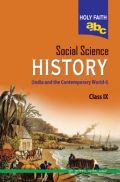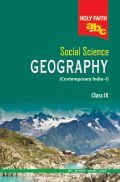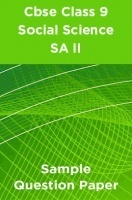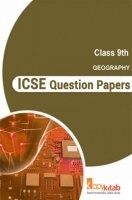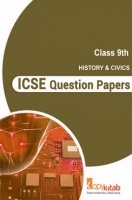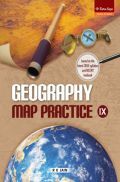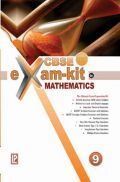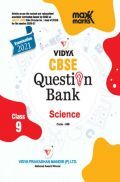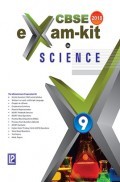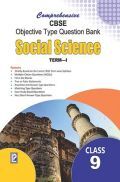CBSE Exam Kit In Social Science Class 9 Exam by G D Singh
Book Summary:
Social Studies plays a significant role in the development of the child. The society is interpreted by the children in their own independent capacities. There is a need for development of appreciation for history, geography, socio-political structures, laws, customs, traditions and spiritual beliefs of different communities among the children. It is required that the method of meeting the expectations of the society, as a citizen need to be inculcated in them. Thus National Curriculum Framework (NCF) has undertaken to train the youngsters as tomorrow’s builders.
Exam-kit in Social Science for Class IX is based on the NCERT guidelines and latest CBSE Syllabus. It teaches all students to see themselves as a part of the society. Such aptitude transforms the point of view of a child, teaching him/her to perceive, analyse and correlate information with the help of various examples, thus developing mastery in the subject. Through this textbook, the subject is presented in a clear, concise and logical manner.
This book presents a clear and expressive text in a chronological order supported by illustrations, diagrams and tables/flowcharts while an array of learning tools serves to effectively embed classroom learning.
Audience of the Book :
This book Useful for Class IX students.
Salient Features:
1. Strictly Based on CBSE Latest Syllabus
2. Written in a Lucid and Simple Language
3. Pictorial Representation
4. Important Concepts and Terms
5. Important Datelines
6. NCERT Textbook Exercises
7. NCERT Intext Questions
8. Additional Questions: Very Short, Short, Long Answer Type Questions
9. Value Based Questions
10. Higher Order Thinking Skills (HOTS) Questions
11. Multiple Choice Questions
12. Map Based Questions
13. Practice Questions
14. Mock Papers
Table of Contents:
Unit I-History
India and the Contemporary World-I
1. The French Revolution
2. Socialism in Europe and the Russian Revolution
3. Nazism and the Rise of Hitler
4. Forest Society and Colonialism
5. Pastoralists in the Modern World
6. Peasants and Farmers
Unit II-Geography
Contemporary India-I
1. India - Size and Location
2. Physical Features of India
3. Drainage
4. Climate
5. Natural Vegetation and Wildlife
6. Population
UNIT II-Political Science
Democratic Politics-I
1. Democracy in the Contemporary World
2. What is Democracy? Why Democracy?
3. Constitutional Design
4. Electoral Politics
5. Working of Institutions
6. Democratic Rights
UNIT IV-Economics
Understanding Economic Development
1. The Story of Village Palampur
2. People as Resource
3. Poverty as a Challenge
4. Food Security in India
Appendix: Project Work
Mock Paper 1-2018
Mock Paper 2-2018









